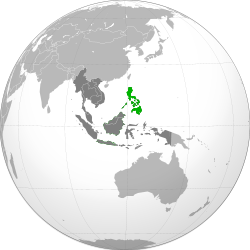Hacienda Luisita Verdict In The Philippines: A Print Media Analysis
By IPCS
By Amruta Karambelkar
The Supreme Court of Philippines upheld its November 2011 decision ordering the break-up of an estate in Hacienda Luisita owned by Conjuangcos, family of President Benigno Aquino lll. In a landmark decision, the 5000 hectare sugar estate will now be divided amongst 6000 farmers. This article will bring out the various perspectives on the reactions to and implications of this decision through a media survey.
Supporters, and otherwise

For Kabataan Party representative Raymond Palatino, the Luisita verdict is a social justice issue. It must be seen as a delayed recognition of the historical right of the hacienda workers – a necessary judicial intervention to end a half-century of criminal landlordism. (Merits, not grudge deciding Hacienda Luisita case-Lawmakers, Philippine Daily Inquirer, 23 April 2012). The New York Times reported that the Supreme Court (SC) decision removed the main obstacle to end the oppressive plantation culture that has dominated the Philippines. The ruling carries deep symbolism in a society where uneven distribution of property concentrates wealth and power in the hands of few landowning families and fuels insurgencies, including Asia’s longest running communist rebellion. (Philippine court rules Aquino estate must be split among 6000, The New York Times, 24 April 2012).
However, not everyone is happy with the redistribution. Once beneficiaries receive land, they have to return their shares of stock to Hacienda Luisita Inc (HLI). Victor Gracia, a farmer, lamented that farmers, as stockholders, were not even consulted before the decision was taken. He preferred the Stock Distribution Option (SDO) because it ‘guaranteed salaries, bonuses and benefits’. He questioned his ability to make the land productive, given his age and lack of wealth. There is the risk that farmers may lose the because eventually they will have to sell when faced with financial problems. (Not all happy with getting land in sugar estate, Inquirer News, 30 April 2012). Being aware of these problems, representatives of the beneficiaries of Luisita have urged Aquino to mobilize assistance for workers to make them self-sufficient cultivators during the difficult transition period. (Philippine President’s kin back ruling on land dispute, Philippine Daily Inquirer, 27 April 2012).
Many uphold the benefits of SDO over land distribution. It has been suggested that the role of the President in the Hacienda case is not to delve into arguments in favour of the SDO, but to deliver on the promise of agrarian reform that his mother failed to deliver. (Agrarian Reform Model, The Philippine Star, 27 April 2012)
Challenges ahead
The biggest problem is how to effectively hand over land to farm workers. Anthony Parungao, the under-secretary for agrarian reform, sees a challenge in redistributing 900,000 hectares of land to beneficiaries 2 years before the termination of the Comprehensive Agrarian Reform Programme’s (CARP) land acquisition phase in 2014. (Palace to implement Supreme Court ruling on Hacienda Luisita, Philippine Daily Inquirer, 30 April 2012). Four unions represent the farm workers of Hacienda Luisita. These groups are hostile to each other and offer different views on how to make land distribution profitable. All the groups want ‘equal sharing’, which leaves each farm worker with approximately only 7000 square metres of land. The president of one union, FARM-Luisita, demands that lands of blood relatives be located adjacent to each other to facilitate mechanized farming. There is no consensus over nature of land titles. The union called Ambala group sees the long-term benefit of protecting land from being recovered if workers hold collective titles. But FARM-Luisita prefers individual titles as group ownership would mean that farm workers would not be their own masters, instead they would have a new landlord. The SC verdict about redistribution is applicable to signatories of the 1989 SDO. Farm workers groups Ambala and FARM-Luisita would be watchful of land distribution and help the Department of Agrarian Reform (DAR) verify the signatories of the 1989 agreement They fear that the 4206 farmers hired after 1989 may be made recipients of the land and (that they) would disrupt the land distribution process. Those who do not belong to any workers group have placed their hopes on the DAR to ensure redistribution and ‘not betray them’. (Disunity strains Hacienda Luisita farmers, Inquirer News, 30 April 2012).
The SC decision has raised people’s hopes but there is no clarity on the future course of action. Agrarian reform officials have said that the resolution of Hacienda Luisita should provide impetus for the government to finish the distribution of almost a million hectares of land that were placed under agrarian reform. Unions like the Save the Agrarian Reform Alliance (SARA) and FARM-Luisita have said that DAR should take advantage of the SC decision to resolve other problematic and big landholdings, and to review other SDO schemes. However the DAR is doubtful whether the SC decision was doctrinal – whether it would cover other cases or is limited only to Hacienda Luisita. (Palace to implement Supreme Court ruling on Hacienda Luisita, Philippine Daily Inquirer, 30 April 2012). On the other hand, Hacienda Luisita Inc (HLI) is clueless about what to do with about 4206 farm workers who are excluded from receiving land as they were not signatories to the 1989 SDO.
Amruta Karambelkar
Research Officer, IPCS
email: [email protected]
